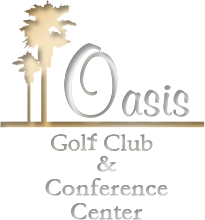welcome to our blog
Date : 4/25/2018
Choose the Right Format for Your Corporate Event

Corporate events take form in many shapes and sizes, but they often tend to be structured in the same way. The wrong format, though, can actually take away from your objectives and success. To help you decide how to structure your next event, here are five basic event formats and what they're each best at.
Conference
The majority of company-wide gatherings, information sessions, annual meetings, and recognition ceremonies are in the form of a conference. They usually have a keynote speaker of some importance (either inside or outside the company) and seek to impart somewhat generalized information. They can be as simple as a brief about company activities or as exciting as announcements of new products.
Conferences are best for giving out information to the group as a whole, especially when you want everyone to receive the same information from a reliable source. Conferences have limited interaction between speakers and the audience, so you probably don't want to use this format for teaching complex or hands-on education.
Seminar
A seminar often has a more limited agenda and limited guest list than a full conference. A seminar is targeted at a specific educational goal you want to impart, with the majority of the time spent speaking before the full audience. One primary difference between seminars and conferences, though, is that seminars tend to have more interaction in the form of question and answer periods.
A seminar allows people to ask questions that they wouldn't in a large conference. The seminar format is also great for different tracks of meetings on different subjects, so a seminar offers freedom of choice and allows you offer more variety within the same amount of time. A symposium is an even more casual seminar with more refreshments and entertainment.
Workshop
A workshop event is often more popular than its more formal cousins, the conference and seminar, because people get to interact in small groups. It often includes breakout sessions where people can bounce ideas off others, brainstorm, and get their hands on products without concern.
Workshops are usually a lot of fun for employees. Mix and match employee groups to help everyone get to know each other. You can use workshops to solicit new ideas from workers, improve on designs, and find out what people are thinking. They also offer a more casual atmosphere and encourage games and conversation.
User Training
When you need to teach people a new skill, software, or company product, you conduct a user training conference. This conference is largely based on speaking to a large audience, but you can also include smaller breakout sessions with a more hands-on approach. You'll likely need more props and probably some additional technology to showcase the product and show how to use it in real life.
Make sure there are lots of pros on hand at the user training to help people keep up with the speaker and other students. Make it interactive and provide as many hands-on opportunities as possible. Create some reallife scenarios and consider offering additional education in different aspects for advanced learners.
Trade Show
A trade show format generally includes a large number of outside vendors and clients. This event's goal is to get people to try new things, buy and sell items, and network outside your own company. Trade shows usually need more space than many other types of events and include the most foot traffic, with an emphasis on people coming and going at their leisure.
Once you understand the goals and needs of your particular corporate event, you can start planning the right venue and the right agenda to fit it. At Oasis Golf Club & Conference Center, we're here to help you create the best event whether it's large or small. Call us today.
[ More Blog Posts ]


